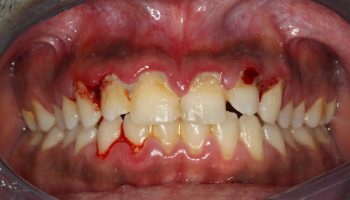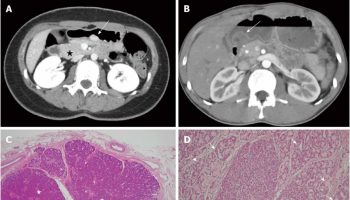Cognitive deficit
Cognition can be defined as any form of information processing, mental operation, or intellectual activity such as thinking, reasoning, remembering, imagining, or learning. Cognition denotes a relatively high level of processing of specific information including thinking, memory, perception, motivation, skilled movements and language 1. The hippocampus contains the neural circuitry crucial for cognitive functions such as learning and memory 1. It refers to the perceptual and intellectual aspects of mental functioning. Among the specific functions that may be assessed in determining the intactness or adequacy of cognition are orientation, the ability to learn necessary skills, solve problems, think abstractly, reason and make judgements, the ability to retain and recall events, mathematical ability and other forms of symbol manipulation, control over primitive reactions and behavior, language use and comprehension, attention, perception and praxis 2.
Cognitive deficit also called intellectual disability, is an inclusive term used to describe impairment in an individual’s mental processes that lead to impairment in information processing, mental operation, or intellectual activity such as thinking, reasoning, remembering, imagining, or learning, and drive, including how an individual understands and acts in the world. Some people with memory problems have a condition called mild cognitive impairment (MCI). Mild cognitive impairment has several types. The type most associated with memory loss is called amnestic mild cognitive impairment.
Cognitive deficits may result in the inability to:
- pay attention
- process information quickly
- remember and recall information
- respond to information quickly
- think critically, plan, organize and solve problems
- initiate speech
A good example of cognitive deficit is dementia. Dementia is a loss of mental functions that is severe enough to affect your daily life and activities. These functions include
- Memory
- Language skills
- Visual perception (your ability to make sense of what you see)
- Problem solving
- Trouble with everyday tasks
- The ability to focus and pay attention
Dementia isn’t a specific disease, but several different diseases may cause dementia. It is normal to become a bit more forgetful as you age. But dementia is not a normal part of aging. It is a serious disorder which interferes with your daily life. Alzheimer’s disease is the most common form of dementia in the elderly 3. It is primarily characterized by cognitive deficits and often presents concomitant with depression which may be a reaction of the early cognitive dysfunctions 4. In turn, depression could lead the accelerated cognitive declines in individuals with pre-existing dementia 5. It was reported that the prevalence of dementia patients who suffer from comorbid depression was from 17 to 50% 6.
Vascular cognitive impairment is the second most common cause of cognitive deficit after Alzheimer’s disease 7. Vascular cognitive impairment is a general term that includes a group of cognitive disorders attributable to a pathological state of the cerebral vascular system 8. In the brain, vascular cognitive impairment is characterized by the atrophy of gray matter and hemispheric white matter lesions 9, but may include also subcortical vascular lesions in, for example, the thalamus. The main cognitive deficits usually involve memory processes, speed of processing, and executive functions 10. Vascular cognitive impairment types are classified according to clinical characteristics, and include vascular mild cognitive impairment, vascular dementia and mixed dementia associated with vascular dysfunction 11. Vascular cognitive impairment prevalence is also age- and risk factor-related. In older people over 65 years, the prevalence of mild vascular cognitive impairment is higher than that of vascular dementia 12. Among other risk factors, the most relevant are those affecting the vascular system and include hypertension, hyperlipidemia, hyperuricemia, diabetes, cardiopathy, history of stroke, carotid plaque, and smoking 13.
Types of cognitive deficits
Working memory
Working memory function is thought to be sustained by a network of temporary memory systems. Working memory plays a crucial role in many cognitive tasks, such as reasoning, learning and understanding. It refers to the ability to hold the stimuli ‘online’ for a short time, then either use it directly after a short delay or process or manipulate it mentally to solve cognitive and behavioral tasks. Working memory involves active rehearsing, processing and manipulation of information. Working memory seems to depend on the function of the prefrontal cortex 14.
Executive function
Executive function refers to the ability to use abstract concepts, to form an appropriate problem-solving test for the attainment of future goals, to plan one’s actions, to work out strategies for problem-solving, and to execute these with the self-monitoring of one’s mental and physical processes. Executive skills are most important in dealing with novel or complex situations. Physiologically, Executive function is linked to the cortical–subcortical circuits and frontal lobes 15.
Attention and information processing
Attention refers to the ability to identify relevant stimuli, focus on these stimuli rather than others (selective attention), ability to perform a task in the presence of distracting stimuli (focused attention), sustain focus on the stimulus until it is processed (sustained attention or vigilance), and allow for the transfer of the stimulus to higher-level processes. The Continuous Performance Test is commonly used for measuring attention 1.
Cognitive deficits in schizophrenia
Cognitive deficits have been an area of research in many psychiatric disorders, the ‘prototype’ work being in schizophrenia. The presence of cognitive deficits in schizophrenia was recognized early almost a century ago 16. Studies have shown that patients with schizophrenia generally perform poorly on cognitive tests and that they specifically have problems in areas of attention, memory, and problem-solving 17. Cognitive impairment which often predates the illness is now considered as one of the cardinal features of schizophrenia, with affected patients typically performing 0.8–1.5 standard deviations below the level of healthy controls across many cognitive domains 18. The range of cognitive deficits is broad and includes problems in perception, attention, memory and problem-solving 19. Several meta-analyses have shown prominent cognitive deficits in schizophrenia in areas such as digit symbol coding, verbal learning, and general IQ, with up to 80% of patients being cognitively impaired 20. More importantly, cognitive deficits are clinically relevant because they are considered to contribute to social impairments and treatment outcome in schizophrenia 21. An important domain of schizophrenia that appears closely related to functional outcome involves cognitive deficits 22. Cognitive deficits may decrease the patients’ ability to adhere to their treatment regimens and may affect the patients’ ability to determine the benefits of medication and the subsequent need for treatment. Deficits in information processing of complex medication regimens can also lead to problems adhering to medication instruction 23.
Cognitive deficits are a core feature of schizophrenia which:
- may precipitate psychotic and negative symptoms 24;
- are relatively stable over time, with progressive deterioration after the age of 65 years in some patients 25;
- persist on the remission of psychotic symptoms 26;
- are related to but separate from negative symptoms 27; and
- determine the functional impairment characteristics of patients with schizophrenia 28.
Cognitive deficits and functional impairment manifest a specific pattern of relationship in schizophrenia:
| Functional domain | Cognitive correlates |
|---|---|
| Social function | Declarative memory, vigilance, executive function |
| Occupational functioning | Executive function, declarative memory, working memory, vigilance |
| Independent functioning | Executive function, declarative memory, working memory |
Working memory deficits in schizophrenia reflect hypofunction of the prefrontal cortex 1. Neuropsychological and imaging studies suggest that the working memory system is of a limited capacity in patients with schizophrenia 29. Working memory deficits have been found to correlate significantly with formal thought disorder 30 and may result in loose association and derailment 31. Deficits in strategic long-term memory (e.g. free recall, memory for temporal order) could be accounted for by deficits in working memory 32.
Patients with schizophrenia also show deficits in measures of executive function 33. Severity of negative symptoms such as affective flattening, alogia, social withdrawal or avolition has been found to be associated with poor performance on measures of executive function 34. Performance on the measures of executive functioning has been found to be linked to insight of illness 34 and hence to poor medication compliance, self—injurious behavior and assaultiveness 35.
Deficits in attention and information processing might be central to schizophrenia because these can contribute to deficits in executive function and working memory 36. Attention deficits are also trait and vulnerability markers seen during remission 37 in children of schizophrenic parents 38 and individuals with schizotypal personality 39. Attention deficits have been found to be robustly associated with deficit syndrome 40. Distractability has been associated with higher levels of formal thought disorder 41.
Although there appears to be a group of patients who are impaired only minimally 42, most patients are characterized as having at least some impairment across a number of domains. More specific deficits in schizophrenia occur within the context of diffuse cognitive impairment—especially in areas of verbal episodic memory and vigilance 43.
Some deficits including verbal memory and learning, visual memory, abstraction, attention and language abilities have been found even in untreated, first-episode patients 44.
Cognitive impairments differ according to the clinical symptomatology—the deficits may be related more with disorganized and negative symptoms and less with psychotic symptoms 45. There appears no pathognomonic neuropsychological profile in schizophrenia, likely due in part to aetiological heterogeneity within the disorder.
Cognitive deficits in mood disorders
Neurocognitive deficits are also present in mood disorders 1. In major depression, cognitive impairment can be severe and global, mimicking dementia 46. People with bipolar disorder has the potential for developing a degree of cognitive deficit as part of their illness. Examples of the kinds of deficits reported with bipolar disorder are difficulties with linguistic working memory (word retrieval), difficulties with planning, prioritizing and organizing of behavior (executive functioning), problems with retention of what’s been read or listened to, as well as the experience of mildly dulled or slowed thought processes. In the acute phase of bipolar disorder, impairment of cognition may progress to a stuporous state. For some with bipolar disorder, it’s like they’ve experienced a gradual decline of brain power from their previous baseline level of function. Cognitive deficits in mood disorders include impaired performance in tests of attention, executive function and memory. Increased cognitive dysfunction is associated with greater severity of symptoms. Owing to the presence of cognitive deficits even during the euthymic/remitted states, it is suggested that certain cognitive deficits are fundamental trait characteristics. Impairment of working memory 47, sustained attention 48, focusing-execution 49, abstract reasoning and visuomotor skills 50, verbal memory 51, verbal fluency 52, visuospatial ability 53, have all been reported, even in the euthymic phase of the illness.
The deficits have been shown to correlate with both the number of affective episodes and the overall duration of illness 54. Performance on memory and executive tasks were most likely to correlate with illness episodes.
The relationships between mood and cognition are dynamic ones, with components that are trait-dependent and others that are state-dependent. Because of their relatively static nature, trait characteristics of cognitive and neurological manifestation may provide insights into core brain anomalies that give rise to severe mood disorders.
Cognitive deficit in depression
Numerous studies have demonstrated the presence of neuropsychological deficits in actually depressed patients with verbal and visual memory as well as executive function 55. The decrement in cognition has been attributed to reduced motivation, attenuated attentional capacity, impaired concentration, intrusive thought and slowness. Cognitive deficits are more pronounced in melancholic than non-melancholic depression.102 Prominent cognitive disturbances may be one of the presenting symptoms of depression. Drevets et al. 56 showed reduced blood flow to the subgenual area of the prefrontal cortex in bipolar and unipolar depression. Core cognitive deficits may be present in unipolar depression which is independent of the depressed state 57.
In the acute phase of depression, patients produce more errors of attention compared with matched controls 57. Austin et al. 58 showed impairment in executive function in the Trail Making Test, part B, which worsened with the level of depression. Verbal memory impairment, such as story recitation and word list recall, has been reported 59.
Non-verbal memory has also been reportedly impaired in depressed patients.106 Implicit non-declarative memory has not been found to be impaired in depressed patients 60.
We carried out a study at our centre on 30 patients with depression and 15 matched controls, and compared their performance on the tests of executive function, attention–concentration and working memory. The findings of the study suggest that depression induces significant impairment in the abilities of sustained attention as shown by the fewer correct responses and more missed responses (errors of omission), and this impairment increases with severity. The number of wrong responses, however, was similar in controls and patients (errors of commission). Reaction time also increases due to depression, which further increases with severity.
Significant impairment in spatial working memory after a delay (error in recall) is seen as compared with controls, its extent, however, is similar across the variable severity.
Patients performed similar to controls at 0 sec (recognition). On Wisconsin Card Sorting Test, executive dysfunction was significant in the patient group; more severe illness was associated with greater impairment in executive function 61.
Cognitive deficit in obsessive-compulsive disorder (OCD)
A recent area of research has been the characterization of neuropsychological deficits in patients with obsessive-compulsive disorder (OCD). This has contributed to the understanding of biological underpinnings of the illness. Cognitive deficits could be functioning as an intermediate variable between neurobiological abnormalities and OCD symptoms. Reductions in social competence and the capacity for independent living and vocational success may be the result of neurocognitive compromise.
EF deficits have been seen in several studies among OCD patients 62. These executive function deficits may explain partly the performance difficulties seen in patients with OCD in other cognitive domains 63. Okasha et al. 64 suggested that patients with OCD are unable to disregard irrelevant stimuli and may become overwhelmed by this information.
Visuospatial and visuoconstructional deficits are among the most consistent findings in neuropsychological assessment studies of patients with OCD 64.
OCD patient groups have shown impairment on numerous tests of non-verbal memory including visual reproduction and delayed recognition of figures, maze learning and intermediate and delayed figure copying. Most studies suggest that encoding and retrieval are impaired in OCD, while storage of information remains intact. Some studies suggest that deficits in encoding of new information are primarily responsible for these performance problems 65. Savage et al. 66 indicate that retrieval is also faulty, while storage is intact. Deckersbach et al. 67 reported that OCD patient groups have deficits in the implicit memory domain of procedural learning in dual task condition. This finding was interpreted as consistent with frontostriatal dysfunction.
Patients with OCD often function remarkably well in their daily lives, despite severe symptomatology and cognitive difficulties, which are apparent only on specific testing. In contrast to non-verbal memory deficits, verbal memory is generally preserved in studies of patients with OCD 68. Patients with OCD demonstrate normal general intelligence and language abilities. Different subtypes of OCD may have varying neuropsychological deficit profiles 69.
In a study we aimed to evaluate the executive function, spatial working memory and performance on continuous tasks of 30 patients with OCD compared with 30 normal matched healthy controls, and to observe the effect of severity and duration of psychopathology on them.
Findings of the study suggested that OCD induces significant impairment in the executive function as lesser categories were completed and more perseverative errors were committed by patients, and that the degree of impairment increases with the severity of the illness.
OCD induces significant impairment in sustained attention abilities, as shown by fewer correct responses and more missed and wrong responses; the degree of impairment does not increase with severity.
Reaction time was, however, not significantly different between the patients and controls.
Significant impairment in spatial working memory was seen as compared controls after a delay (error in recall); its extent also increased with increasing severity. The patients performed similar to controls at 0 sec (recognition).
No effect was found of the duration of illness on performance in any of the domains.
Cognitive deficits in borderline personality disorder
Neuropsychological and psychopathological factors in personality disorders seem to be related thus, they challenge the assumption that personality traits are responsible for the behavioural and emotional experiences associated with borderline personality disorder. Studies have revealed poor decision-making skills 70. Burgees 71 revealed a link between attention and memory impairment and self-injury. O’Leary et al. 72 showed that although verbal memory skills of borderline personality disorder patients were impaired, their memory improved with the use of cues. Thus, clinicians might make use of cueing strategies when working with these patients. Paris et al. 73 found significant impairment on tests of frontal lobe and executive functions in children with borderline personality disorder, and also showed inconsistent levels of attention, poor orientation to task and slower reaction on Cognitive Performance Test (CPT). In fact, suicide risk in borderline personality disorder patients has been linked to cognitive functioning and not to level of depression 71.
Cognitive deficits in attention deficit/hyperactivity disorder (ADHD)
In general, poor performance on tests of executive function, sustained attention and memory tend to be the most common neuropsychological deficits reported in children and adults with ADHD. There is little evidence for deficits in basic motor, visuospatial or sensory functioning in ADHD, with the possible exception of olfactory processing 70. In particular, converging evidence points to a prominent disturbance of executive function 74. Various execution functions that have been studied in relation to ADHD are: cognitive flexibility, initiation, interference control, planning and organization, response inhibition, self-monitoring and working memory. Further research using cognitive tasks assessing executive function in combination with functional imaging techniques will provide insights into the aetiology of the disorder.
Cognitive impairments in substance abuse
Cognitive dysfunctions have been demonstrated following substance abuse. These functions include mental activities that involve acquiring, storing, retrieving and using information. These cognitive functions could play an important role in the development of the addictive process and rehabilitation of substance abusers. Prochaska et al. 75 postulated that cognitive skills are critical for drinking behaviour change. Memory and executive function are likely to influence the execution of skills that are implicated for both motivating and sustaining drinking behaviour change. Blume et al. 76 showed that an explicit memory process may have utility for predicting readiness to change drinking behaviour. Lyvers et al. 77 showed that opioid dependence such as alcohol addiction is associated with cognitive dysfunctions. Newly detoxified alcoholics exhibit relatively intact verbal and general intellectual abilities, but impaired non-verbal abilities 78. Deficits exist in novel problem-solving, abstract reasoning, and learning and recalling information 79. Deficits in perceptual–motor abilities, abstract reasoning, and non-verbal learning and memory can persist for months or years 80. Neuropsychological test findings with substance-dependent populations also might influence the design of treatment programmes 81.
References- Trivedi JK. Cognitive deficits in psychiatric disorders: Current status. Indian J Psychiatry. 2006;48(1):10–20. doi:10.4103/0019-5545.31613 https://www.ncbi.nlm.nih.gov/pmc/articles/PMC2913637
- Campbell RJ. Campbell’s psychiatric dictionary. 8th ed. Oxford: Oxford University Press; 2004. p. 131.
- McKhann G. M., Knopman D. S., Chertkow H., Hyman B. T., Jack C. R., Kawas C. H., et al. (2011). The diagnosis of dementia due to Alzheimer’s disease: recommendations from the National Institute on Aging-Alzheimer’s Association workgroups on diagnostic guidelines for Alzheimer’s disease. Alzheimer Demen. 7 263–269. 10.1016/j.jalz.2011.03.005
- Espiritu D. A. V., Rashid H., Mast B. T., Fitzgerald J., Steinberg J., Lichetnberg P. A. (2001). Depression, cognitive impairment and function in Alzheimer’s disease. Int. J. Geriatr. Psychiatry 16 1098–1103.
- Rapp M. A., Schnaider-Beeri M., Wysocki M., Guerrero-Berroa E., Grossman H. T., Heinz A., et al. (2011). Cognitive decline in patients with dementia as a function of depression. Am. J. Geriatr. Psychiatry 19 357–363. 10.1097/JGP.0b013e3181e898d0
- Leeuwis A. E., Prins N. D., Hooghiemstra A. M., Benedictus M. R., Scheltens P., Barkhof F., et al. (2018). Microbleeds are associated with depressive symptoms in Alzheimer’s disease. Alzheimers Dement. 10 112–120. 10.1016/j.dadm.2017.11.006
- Hort J, Vališ M, Kuča K, Angelucci F. Vascular Cognitive Impairment: Information from Animal Models on the Pathogenic Mechanisms of Cognitive Deficits. Int J Mol Sci. 2019;20(10):2405. Published 2019 May 15. doi:10.3390/ijms20102405 https://www.ncbi.nlm.nih.gov/pmc/articles/PMC6566630
- Barbay M., Taillia H., Nedelec-Ciceri C., Arnoux A., Puy L., Wiener E., Canaple S., Lamy C., Godefroy O., Roussel M. Vascular cognitive impairment: Advances and trends. Rev. Neurol. 2017;173:473–480. doi: 10.1016/j.neurol.2017.06.009
- Heiss W.-D., Rosenberg G.A., Thiel A., Berlot R., de Reuck J. Neuroimaging in vascular cognitive impairment: A state-of-the-art review. BMC Med. 2016;14:174. doi: 10.1186/s12916-016-0725-0
- Tiel C., Sudo F.K., Alves G.S., Ericeira-Valente L., Moreira D.M., Laks J., Engelhardt E. Neuropsychiatric symptoms in Vascular Cognitive Impairment: A systematic review. Dement. Neuropsychol. 2015;9:230–236. doi: 10.1590/1980-57642015dn93000004
- Skrobot O.A., Love S., Kehoe P.G., O’Brien J., Black S., Chen C., DeCarli C., Erkinjuntti T., Ford G.A., Kalaria R.N., et al. The Vascular Impairment of Cognition Classification Consensus Study. Alzheimer’s Dement. 2017;13:624–633. doi: 10.1016/j.jalz.2016.10.007
- Wang T., Xiao S., Chen K., Yang C., Dong S., Cheng Y., Li X., Wang J., Zhu M., Yang F., et al. Prevalence, incidence, risk and protective factors of amnestic mild cognitive impairment in the elderly in Shanghai. Curr. Alzheimer Res. 2017;14:460–466.
- Corrao S., Lo Coco D., Lopez G. Cognitive impairment and stroke in elderly patients. Vasc. Health Risk Manag. 2016;12:105. doi: 10.2147/VHRM.S75306
- Goldman-Rakic PS. Working memory dysfunction in schizophrenia. J Neuropsychiatry Clin Neurosci. 1994;6:348–57.
- Cummings JL. Frontal-subcortical circuits and human behavior. Arch Neurol. 1993;50:873–80.
- Settem VVJ, Karanadi H, Praharaj SK. Cognitive deficits, depressive symptoms, insight, and medication adherence in remitted patients with schizophrenia. Indian J Psychiatry. 2019;61(4):335–341. doi:10.4103/psychiatry.IndianJPsychiatry_17_19 https://www.ncbi.nlm.nih.gov/pmc/articles/PMC6657539
- Gold JM, Harvey PD. Cognitive deficits in schizophrenia. Psychiatr Clin North Am. 1993;16:295–312.
- Heinrichs RW, Zakzanis KK. Neurocognitive deficit in schizophrenia: A quantitative review of the evidence. Neuropsychology. 1998;12:426–45.
- Green MF. Schizophrenia revealed: From neurons to social interactions. New York: WW Norton; 2001.
- Mesholam-Gately RI, Giuliano AJ, Goff KP, Faraone SV, Seidman LJ. Neurocognition in first-episode schizophrenia: A meta-analytic review. Neuropsychology. 2009;23:315–36.
- Bowie CR, Harvey PD. Cognitive deficits and functional outcome in schizophrenia. Neuropsychiatr Dis Treat. 2006;2:531–6.
- Green MF, Kern RS, Braff DL, et al. Neurocognitive deficits and functional outcomes in schizophrenia: Are we measuring the right stuff? Schizophr Bull. 2000;26:119–36.
- Jeste SD, Patterson TL, Palmer BW, Dolder CR, Goldman S, Jeste DV. Cognitive predictors of medication adherence among middle-aged and older outpatients with schizophrenia. Schizophr Res. 2003;63:49–58.
- Crow TJ, Done DJ, Sacker A. Childhood precursors of psychoses as clues to its evolutionary origins. Eur Arch Psychiatry Clin Neurosci. 1995;245:61–9.
- Friedman JI, Harvey PD, Coleman T, et al. Six-year follow-up study of cognitive and functional status across the lifespan in schizophrenia: A comparison with Alzheimer’s disease and normal aging. Am J Psychiatry. 2001;158:1441–8.
- Heaton RK. Wisconsin Card Sorting Test. Psychological Assessment Resources. 1993.
- Hughes C, Kumari V, Soni Q, et al. Longitudinal study of symptoms and cognitive function in chronic schizophrenia. Schizophr Res. 2002;123:243–55.
- Green MF. What are the functional consequences of neurocognitive deficits in schizophrenia? Am J Psychiatry. 1996;153:321–30.
- Buchsbaum MS, Hazlett EA. Positron emission tomography studies of abnormal glucose metabolism in schizophrenia. Schizophr Bull. 1998;24:343–64.
- Spitzer M. The psychopathology, neuropsychology, and neurobiology of associative and working memory in schizophrenia. Eur Arch Psychiatry Clin Neurosci. 1993;243:57–70.
- Rochester SR. Are language disorders in acute schizophrenia actually information processing problems? J Psychiatry Res. 1978;14:275–83.
- Stone M, Gabrieti JDE, Stebbins T, et al. Working and strategic memory deficits in schizophrenia. Neuropsychology. 1998;12:278–88.
- Braff DL, Heaton R, Kuck J, et al. The generalized pattern of neuropsychological deficits in outpatients with chronic schizophrenia with heterogeneous Wisconsin Card Sorting Test results. Arch Gen Psychiatry. 1991;48:891–8.
- Voruganti LN, Heslegrave RJ, Awad AG. Neurocognitive correlates of positive and negative syndromes in schizophrenia. Can J Psychiatry. 1997;42:1066–71.
- Meltzer HY. Treatment of suicidality in schizophrenia. Ann N Y Acad Sci. 2001;932:44–58.
- Braff DL. Information processing and attention dysfunctions in schizophrenia. Schizophr Bull. 1993;19:233–59.
- Nuechterlein KH. Childhood precursors of adult schizophrenia. J Child Psychol Psychiatry. 1986;27:133–44.
- Cornblatt BA, Erlenmeyer-Kimling L. Global attentional deviance as a marker of risk for schizophrenia: Specificity and predictive validity. J Abnorm Psychol. 1985;94:470–8.
- Trestman RL, Keefe RS, Mitropoulou V, et al. Cognitive function and biological correlates of cognitive performance in schizotypal personality disorder. Psychiatr Res. 1995;59:127–36.
- Ross DE, Thaker GK, Buchanan RW, et al. Eye tracking disorder in schizophrenia is characterized by specific ocular motor defects and is associated with the deficit syndrome. Biol Psychiatry. 1997;42:781–96.
- Perry W, Braff DL. Information-processing deficits and thought disorder in schizophrenia. Am J Psychiatry. 1994;151:363–7.
- Allen DN, Goldstein G, Warnick E. A consideration of neuro-psychologically normal schizophrenia. J Int Neuropsychol Soc. 2003;9:56–63.
- Cirillo MA, Seidman LJ. Verbal declarative memory dysfunction in schizophrenia: From clinical assessment to genetics and brain mechanisms. Neuropsychol Rev. 2003;13:43–77.
- Schuepbach D, Keshavan MS, Sweeney JA. Selective attention in neuroleptic-naïve first-episode schizophrenia: A two-year follow up. Biol Psychiatry. 2002;51:118S–19S.
- Brazo P, Marie RM, Halbecq I, et al. Cognitive patterns in subtypes of schizophrenia. Eur Psychiatry. 2002;17:155–62.
- Rabins PV, Merchant A. Criteria for diagnosing reversible dementia caused by depression: Validation by 2-year follow-up. Br J Psychiatry. 1984;144:488–92.
- Ferrier IN, Stanton BR, Kelly TP, et al. Neuropsychological function in euthymic patients with bipolar disorder. Br J Psychiatry. 1999;175:246–51.
- Clark LD, Iversen SD, Goodwin G. Sustained attention deficit in bipolar disorder. Br J Psychiatry. 2002;180:313–19.
- Jones BP, Duncan CC, Mirsky AF, et al. Neuropsychological profiles in bipolar affective disorder and complex partial seizure. Neuropsychology. 1994;8:55–64.
- Ali SO, Denicoff KD, Altshuler LL, et al. A preliminary study of the relation of neuropsychological performance to neuroanatomic structures in bipolar disorder. Neuropsychiatry Neuropsychol Behav Neurol. 2000;13:20–8.
- Van Gorp WG, Altshuler L, Theberge DC, et al. Declarative and procedural memory in bipolar disorder. Biol Psychiatry. 1999;46:525–31.
- Lebowitz BK, Shear PK, Steed MA, et al. Verbal fluency in mania: Relationship to number of manic episodes. Neuropsychiatry Neuropsychol Behav Neurol. 2001;14:177–82.
- Sapin LR, Berrettini WH, Nurnberger JI, Jr, et al. Mediational factors underlying cognitive changes and laterality in affective illness. Biol Psychiatry. 1987;22:979–86.
- Cavanagh JTO, Van Beck M, Muir W, et al. Case–control study of neurocognitive function in euthymic patients with bipolar disorder: An association with mania. Br J Psychiatry. 2002;180:320–6.
- Elliot R, Baker SC, Rogers RD, et al. Prefrontal dysfunction in depressed patients performing a complex planning task: A study using positron emission tomography. Psychol Med. 1997;27:931–42.
- Drevets WC, Price JL, Simpson JR. Subgenual prefrontal cortex abnormalities detected in bipolar affective disorder using MRI. Arch Gen Psychiatry. 1997;47:55–9.
- Paradiso S, Lamberty GJ, Gravey MJ, et al. Cognitive impairment in euthymic phase of chronic unipolar depression. J Nerv Ment Dis. 1997;185:718–54.
- Austin MP, Ross M, Murray C, et al. Cognitive function in major depression. J Affect Disord. 1992;26:127–37.
- Zubieta JK, Huguelet P, O’Neil RL, et al. Cognitive function in euthymic bipolar I disorder. Psychiatry Res. 2001;102:9–20.
- Ilsley JE, Moffoot AP. An analysis of memory dysfunction in major depression. J Affect Disord. 1995;35:1–9.
- Trivedi JK, Tandon R, Singh AP, et al. Executive functions in depression: A clinical report. Indian J Psychiatry. 2002;44:343–7.
- Savage CR, Baer L, Keuthen NJ, et al. Organizational strategies mediate non-verbal memory impairment in obsessive–compulsive disorder. Biol Psychiatry. 1999;45:905–16.
- Savage CR. Neuropsychology of subcortical dementias. Psychiatr Clin North Am. 1997;20:911–31.
- Okasha A, Rafaat M, Mahallawy N, et al. Cognitive dysfunction in obsessive—compulsive disorder. Acta Psychiatr Scand. 2000;101:281–5.
- Cohen LJ, Hollander E, DeCaria CM, et al. Specificity of neuropsychological impairment in obsessive—compulsive disorder. J Neuropsychiatry Clin Neurosci. 1996;8:99–103.
- Savage CR, Keuthen NJ, Jenike MA, et al. Recall and recognition memory in obsessive–compulsive disorder. J Neuropsychiatry Clin Neurosci. 1996;8:99–103.
- Deckersbach T, Savage CR, Curran T, et al. A study of parallel implicit and explicit information processing in obsessive–compulsive disorder. Am J Psychiatry. 2002;159:1780–2.
- Boone KB, Ananth J, Philpott L, et al. Neuropsychological characteristics of non-depressed adults with obsessive–compulsive disorder. Neuropsychiatry Neuropsychol Behav Neurol. 1991;4:96–109.
- Malloy P. Frontal lobe dysfunction in obsessive–compulsive disorder. In: Perecman E, editor. The frontal lobes revisited. New York: The IRBN Press; 1987. pp. 207–23.
- Bazanis E, Rogers RD, Dowson P. Neurocognitive deficits in decision-making and planning of patients with DSM-III-R borderline personality disorder. Psychol Med. 2002;32:1395–405.
- Burgees JW. Relationship of depression and cognitive impairment to self-injury in borderline personality disorder, major depression, and schizophrenia. Psychiatry Res. 1991;38:77–87.
- O’Leary KM, Brouwers P, Gardner DL. Neuropsychological testing of patients with borderline personality disorder. Am J Psychiatry. 1991;148:106–11.
- Paris J, Zelkowitz P, Guzder J, et al. Neuropsychological factors associated with borderline pathology in children. J Am Acad Child Adolesc Psychiatry. 1999;38:770–4.
- Woods SP, Lovejoy DW, Ball JD. Neuropsychological characteristics of adults with ADHD: A comprehensive review of initial studies. Clin Neuropsychol. 2002;16:12–34.
- Prochaska JO, Dectemente CC. Transtheoretical therapy: Towards a more integrative model of change. Psychotherapy, Theory, Research and Practice. 1982;19:276–88.
- Blume AW, Schmaling KB, Marlatt GA. Memory, executive cognitive function and readiness to change drinking behaviour. Addict Behav. 2005;30:301–14.
- Lyvers M, Yakeimoff M. Neuropsychological correlate of opioid dependence and withdrawal. Addict Behav. 2003;28:605–11.
- Rourke SB, Lorberg T. The neurobehavioural correlates of alcoholism. In: Grand I, Adams KM, editors. Neuropsychological assessment of neuropsychiatric disorders. 2nd ed. New York: Guilford; 1998. pp. 423–85.
- Allen DN, Landis RKB. Neuropsychological correlates of substance use disorders. In: Snyder PJ, Nassbaum PD, editors. Clinical neuropsychology: A pocket handbook for assessment. Washington (DC): American Psychological Association; 1998. pp. 591–612.
- Bates ME, Bowden SC, Barry D. Neurocognitive impairment associated with alcohol use disorders: Implications for treatment. Exp Clin Psychopharmacol. 2002;10:193–212.
- Fals-Stewart W, Schafer J, Lucente S, et al. Neurobehavioural consequences of prolonged alcohol and substance abuse: A review of findings and treatment implications. Clin Psychol Rev. 1994;14:775–88.





